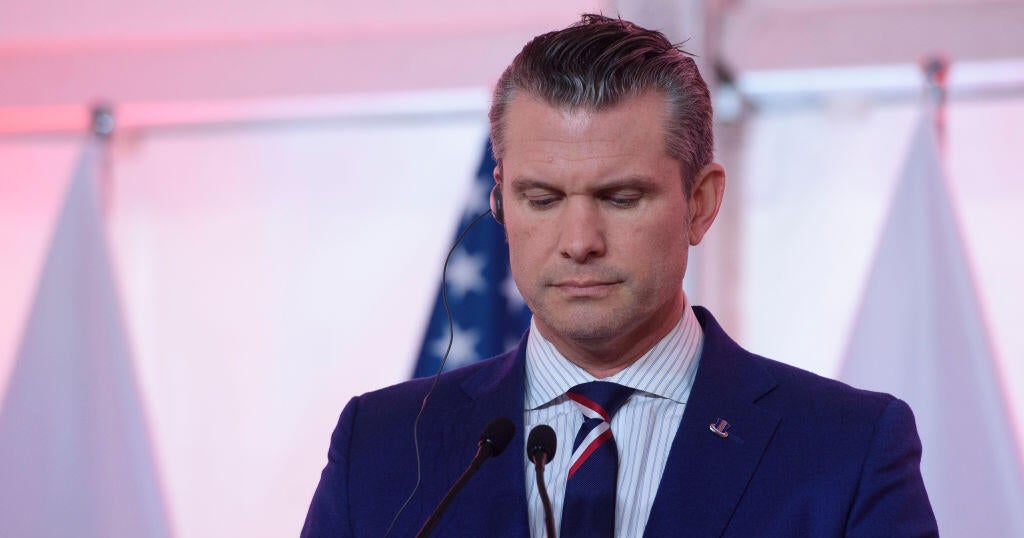In a stunning revelation, lawmakers reacted with widespread outrage after it was reported that the editor of a well-known magazine was accidentally included in a group chat involving high-ranking officials of the Trump administration. This security breach concerns sensitive discussions surrounding U.S. military operations in Yemen, sparking calls for investigations from both Democratic and Republican lawmakers. Prominent political figures have characterized the incident as a serious failure in operational security, highlighting potential risks to national safety and operational integrity.
| Article Subheadings |
|---|
| 1) Details of the Security Breach |
| 2) Congressional Reactions |
| 3) Implications for National Security |
| 4) Responses from Administration Officials |
| 5) Moving Forward: Accountability Measures |
Details of the Security Breach
The incident came to light following a report by Jeffrey Goldberg, the editor in chief of The Atlantic, who disclosed that he was inadvertently added to a group chat on the encrypted messaging app Signal. This chat included prominent figures in the Trump administration, such as Mike Waltz, the National Security Advisor, and Pete Hegseth, the Secretary of Defense. During the chat, officials discussed plans to engage military targets related to the Houthi conflict in Yemen, exposing sensitive information just days before operations were executed. The breach raises critical questions around the protocols governing communications on matters of national defense.
Congressional Reactions
Members of both political parties expressed their outrage regarding the breach. Senate Democrats were particularly vocal, with Jack Reed, the Armed Services Committee’s top Democrat, labeling it “one of the most egregious failures of operational security and common sense.” He underscored the need for military matters to be dealt with a high degree of discretion. Similarly, Senate Minority Leader Chuck Schumer advocated for a comprehensive investigation into the incident, expressing concern over the potential ramifications of unsecured communications among officials entrusted with sensitive information.
On the Republican side, Roger Wicker, the committee chair, acknowledged the mistake and confirmed that the matter would be scrutinized during classified briefings. However, some Republican representatives, while recognizing the incident’s severity, maintained a more supportive stance towards the officials involved.
Implications for National Security
The incident opens up significant discussions around operational security and the inherent risks linked to electronic communications. Experts have raised concerns about the possibility that classified information discussed in the chat might be subject to surveillance or hacking by foreign adversaries. Jim Himes, a member of the House Intelligence Committee, warned that those included in the discussion are prime targets for foreign intelligence operations. The sheer negligence displayed through the use of an unsecured app for such crucial conversations prompts questions about the training and responsibility of senior officials.
Furthermore, there are allegations that this breach might violate legal standards laid out in the Espionage Act, which prohibits unauthorized transmission of classified information. If found guilty, officials involved could potentially face severe penalties, highlighting the gravity of recklessness in handling national security information.
Responses from Administration Officials
In the aftermath of the revelations, Pete Hegseth publicly denied the characterization of the chat as discussing war plans, referring to the claims as unfounded and labeling Goldberg a “deceitful” journalist. Meanwhile, the National Security Council confirmed the authenticity of the messaging thread, asserting that the chat demonstrates “deep and thoughtful policy coordination” among senior officials, emphasizing that operational success negated any risks posed during the discussions.
President Trump himself downplayed the importance of the matter, expressing his disinterest in the situation and dismissing the credibility of The Atlantic. This nonchalant reaction from top officials raises concerns among lawmakers about accountability, professionalism, and the overall competence of the administration’s handling of national security matters.
Moving Forward: Accountability Measures
As outrage continues to build, legislators have called for the establishment of new safeguards to prevent similar breaches in the future. A common recommendation among lawmakers is to enhance training for officials on classified protocols and the proper channels for discussing sensitive information. Several representatives urged for lawmaker oversight and potential investigations focusing on both the technical and organizational failings that contributed to this situation.
As discussions of accountability unfold, legislators are eager to understand how conduct of such magnitude could be allowed in an administration led by a President who promised to appoint the best individuals for national security positions. Lawmakers are poised to dissect this event as part of broader scrutiny regarding Trump administration’s operational accountability and its implications for American security.
| No. | Key Points |
|---|---|
| 1 | Lawmakers expressed outrage following security breach involving U.S. military plans. |
| 2 | Democrats particularly criticized the administration’s operational security practices. |
| 3 | Concerns raised about the potential for foreign surveillance of sensitive communications. |
| 4 | Call for investigations into both the unauthorized communications and potential legal violations. |
| 5 | Legislation aims to introduce safeguards against future breaches of national security. |
Summary
The reported breach of communication by high-ranking Trump administration officials raises critical concerns around national security protocols and operational integrity. Lawmakers from both parties have emphasized the need for thorough investigations and potential reforms to safeguard sensitive discussions. As the implications of this breach unfold, it remains a pivotal moment in understanding the competence of national leaders entrusted with the safety of U.S. military operations.
Frequently Asked Questions
Question: What was the security breach about?
The security breach involved the accidental inclusion of a journalist in a group chat of high-ranking Trump administration officials discussing sensitive U.S. military operations in Yemen.
Question: How did members of Congress respond to the incident?
Lawmakers on both sides expressed outrage, with many Democrats calling for immediate investigations and heightened scrutiny over operational security practices.
Question: What are the potential consequences of this breach?
The breach may violate legal standards regarding the handling of classified information, leading to potentially severe consequences for the involved officials and raising concerns about national security protocols.


